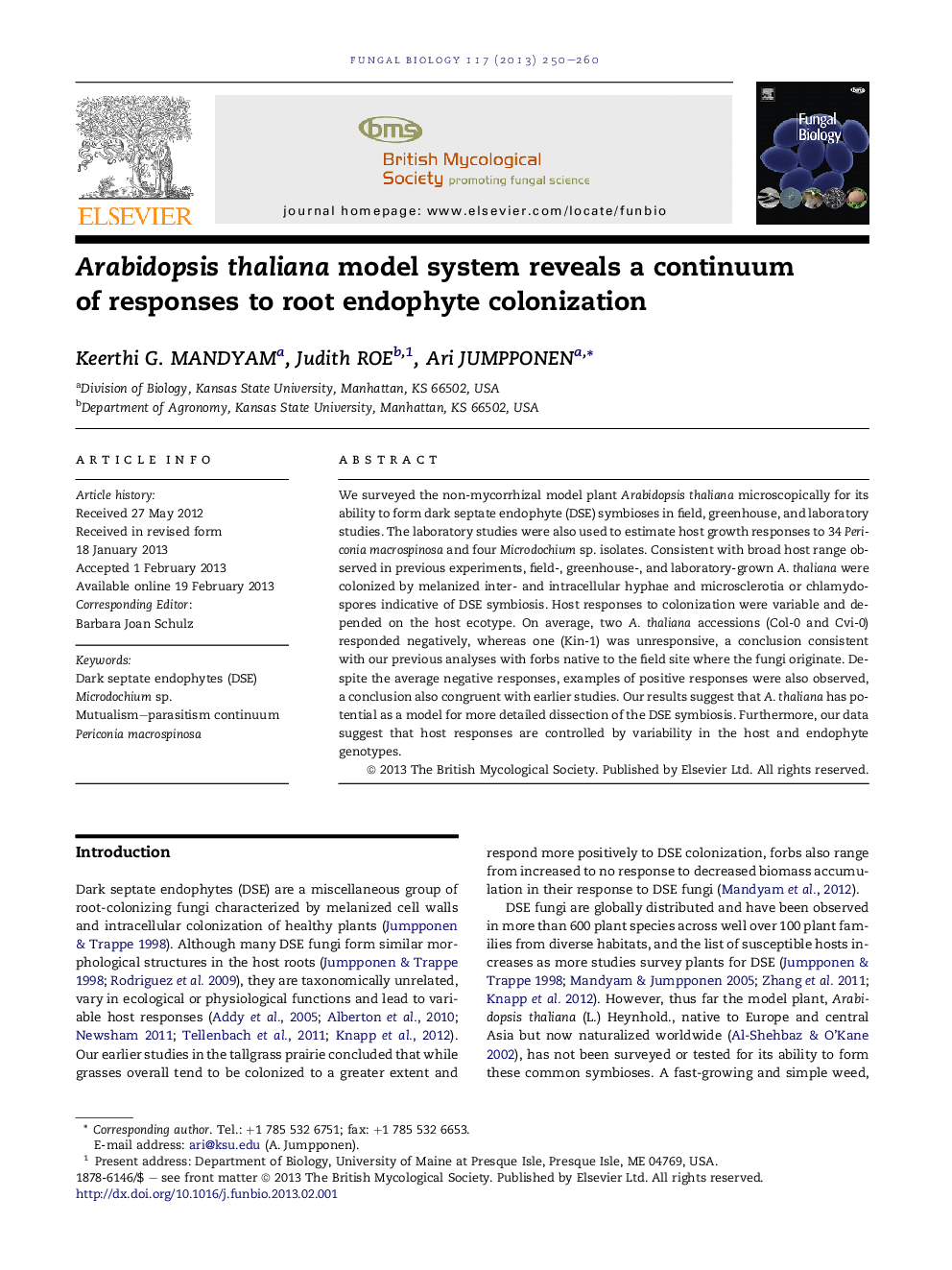| Article ID | Journal | Published Year | Pages | File Type |
|---|---|---|---|---|
| 4357067 | Fungal Biology | 2013 | 11 Pages |
We surveyed the non-mycorrhizal model plant Arabidopsis thaliana microscopically for its ability to form dark septate endophyte (DSE) symbioses in field, greenhouse, and laboratory studies. The laboratory studies were also used to estimate host growth responses to 34 Periconia macrospinosa and four Microdochium sp. isolates. Consistent with broad host range observed in previous experiments, field-, greenhouse-, and laboratory-grown A. thaliana were colonized by melanized inter- and intracellular hyphae and microsclerotia or chlamydospores indicative of DSE symbiosis. Host responses to colonization were variable and depended on the host ecotype. On average, two A. thaliana accessions (Col-0 and Cvi-0) responded negatively, whereas one (Kin-1) was unresponsive, a conclusion consistent with our previous analyses with forbs native to the field site where the fungi originate. Despite the average negative responses, examples of positive responses were also observed, a conclusion also congruent with earlier studies. Our results suggest that A. thaliana has potential as a model for more detailed dissection of the DSE symbiosis. Furthermore, our data suggest that host responses are controlled by variability in the host and endophyte genotypes.
► Arabidopsis thaliana ecotypes form dark septate endophyte (DSE) symbioses. ► Host responses to DSE depend on the host ecotype and fungal strain. ► Average A. thaliana responses were neutral or negative. ► Yet, mutualisms were observed within each A. thaliana ecotype. ► Host responses are best evaluated with adequate numbers of fungal strains.
